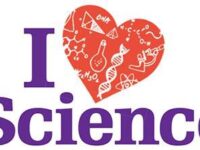Specialized and high-quality education is a hard-earned privilege, not a necessity. Here in the United States, there are many examples of barriers that have prevented students from enjoying hands-on opportunities to grasp valuable knowledge from a young age. Racial discrimination, poverty, and other disparities all represent prominent problems when it comes to providing kids with proper education. Defining “proper education” can be tricky; however, early exposure to career-based expertise has been deemed essential in determining a child’s success. Introducing kids to various career options and teaching them the importance of what they are learning helps them to “dream big.”
This idea of providing early career opportunities to young students is especially evident in STEM-based fields. Many factors of a STEM-based career like the competitive atmosphere and challenging coursework may lead someone to avoid one altogether rather than pursue it. However, Harvard Medical School (HMS) is helping to bring down some of these bridges. Instead of depending on the assumptions and rumors of health careers, students can experience it themselves. Through the Harvard MEDScience Program, the school hopes to provide high school students with a glimpse of the medical world. It focuses on bringing teenagers from Boston and beyond to experience clinical and lab case scenarios. No matter who they are or where they have been, the students can experience something unique, an early gateway into hands-on clinical techniques and solving cases as if they were standing in the emergency room itself. The process often involves interacting with mannequins, diagnosing symptoms of certain diseases, and allowing the students to work together as if they were a real medical team helping to solve problems for patients in need. By providing this valuable opportunity for students, HMS is helping to provide rare early exposure to aspiring health professionals. In addition, it inspires those to be the representation desperately needed in the medical world by inviting a diverse selection of students to the program.
Recently, the program has shifted its curriculum and decided to launch a forensic science course, which emphasizes the integration of medicine in fields where it may not be expected. Forensic science is a field of science one might be aware of due to shows like “Criminal Minds” and “CSI: Crime Scene Investigation.” But there is more to forensic science than the dramatic questioning and mysterious unsolved cases. There are a plethora of subfields in forensics that are rarely uncovered by audiences of shows. Forensic science is defined by the American Academy of Forensic Science as a science relevant to law. Thus, it is a branch of science that often uses its discoveries in civil and criminal court cases.
The HMS curriculum provides students with an immersive experience. This includes taking on many roles, like being the scientist working in a laboratory to discover the suspects, the medical examiner to collect evidence from the patients, and the detective to solve the case. While students are in the laboratory, they conduct techniques such as pipetting, DNA fingerprint recognition, gel electrophoresis, ELISA assays, and more skills one usually isn’t exposed to before college. While in the role of the medical examiner, the students are involved in the storyline aspect of the course by interacting with the patients themselves. This includes talking to patients and not only solving their medical emergencies by reading vitals, conducting physical exams, and conducting treatment plans but also by interviewing them about the crime that has been committed. This involves going to the scene of the crime and collecting evidence they will then use in the laboratory. By talking to the patient and suspects, they are applying clinical and interviewing skills not often found in a traditional classroom setting. Thus the program offers a rare opportunity for students to have an early exploration of the world of forensic science.
HMS MedScience thus tries to bring more awareness of how there is a multitude of subdivisions in medicine for students to explore. By allowing students to play the role of a medical examiner, students are allowed to explore careers in medicine that many may not traditionally think of when deciding on a specialty. Though other programs in universities like Wellesley College try to introduce students to forensic science, HMS MedScience takes a different route in providing the clinical, laboratory, and field experience that it takes to participate in medical forensic science, standing out from other programs set before theirs.
Image courtesy of Wikimedia Commons






